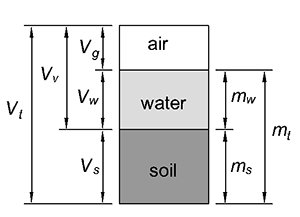Six Sigma Certification Levels
Six Sigma is a technique used to reduce defects in the manufacturing process. Although it was originally developed for the manufacturing industry, it can be used to improve any business process by using data and statistical analysis to reduce mistakes, rework, and waste. I've found that my six sigma certification....
Six Sigma Crash Course
Six Sigma is a hot buzzword these days, but what is it and how does it really work? In this article I will give you a quick overview and get you grounded in the basics. In reality it takes a week long intensive course to get all the concepts, and....
PERT Charts: The Project Manager’s Sketch Pad
The Program Evaluation and Review Technique (PERT) is a great way for project managers to organize and prioritize tasks. PERT charts are a central part of any project management course. They are quick to draw and intuitive to use. How to Draw a PERT Chart There are two rules: Tasks....
Integrate Project Management into Your Projects
At the engineering firm I founded, we've recently seen an increase in RFP's (Requests For Proposal) that include project management as a consultant selection criteria, in one form or another. Not just as a "nice to have" criteria, but as one of the scores that factor in the selection of....
Best Civil Engineering Firms to Work For
Every year, CE News publishes the "Best Civil Engineering Firms to Work For." Since the award began in 2001, hundreds of outstanding civil engineering firms have received the award. Being on the list attracts good employees and good clients. Results are obtained from a survey of the employees by CE....
Difference between Pound-Force and Pound-Mass
In the SI (metric) system of units, kilograms are used for mass, and newtons for weight. There is no confusion as the units are different. However, in the US system, pounds are used for both mass and weight. Confusing? You didn't think it was going to be easy did you? To....
How to Calculate Void Ratio
The void ratio is the ratio of the volume of voids (open spaces, i.e. air and water) in a soil to volume of solids. $$e = \frac{V_v}{V_s}\newline\newline =\frac{V_g + V_w}{V_s}$$ Where: e = Void Ratio Vv = Volume of voids (m3 or ft3) Vs = Volume of solids (m3 or....
The Experts Speak Out: Another Engineer’s Perspective
Recently I watched the latest documentary, called The Experts Speak Out, from the 911 Truth Movement. Truthers, as they are called, believe that there is evidence that the World Trade Center buildings were most likely brought down by controlled demolition rather than weakness from the airplane's impact. Apparently over 2,100....
Engineering Project Management
The thing that amazes me about project management in the engineering business is how little it gets used. We engineers are in control of the largest projects in the world, but most engineers have little more than a passing knowledge of project management processes. In this article, I will talk....
Engineering Management
Since I've become the manager of an engineering company, I've learned many things, but I will divide them into the following three categories. Business Management Client Management Project Management Business Management As a manager, you're responsible for making the business grow (or not grow!). This means you need to track....










